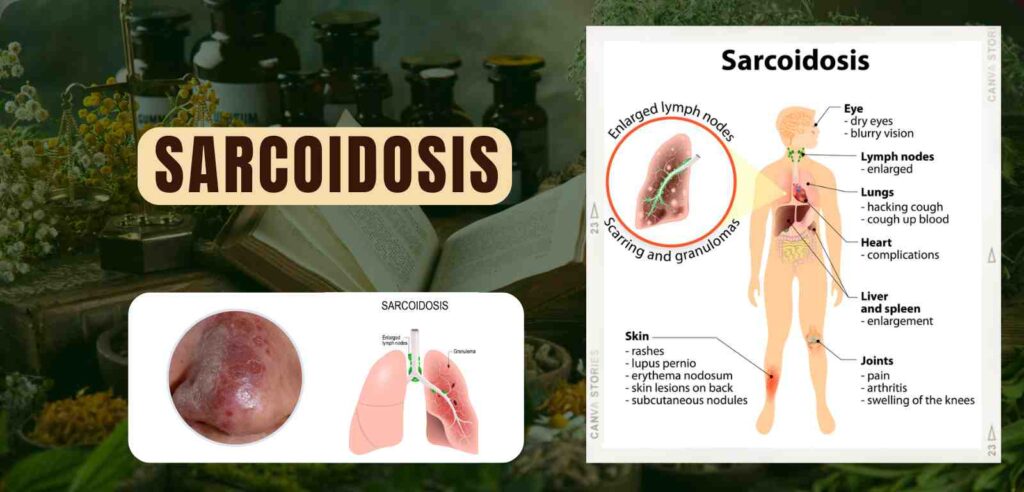
Sarcoidosis
Sarcoidosis is a rare disease that causes inflammation, usually in the lungs, skin, or lymph nodes.
It is characterized by the formation of granulomas, which are tiny clumps of inflammatory cells.
While sarcoidosis can affect anyone, it’s more common in people between the ages of 20 and 40.
The exact cause of sarcoidosis is unknown, but it’s likely linked to an abnormal immune response.
Sarcoidosis is a complex disease with a wide range of symptoms that can affect various parts of the body.
While the exact cause remains unknown, understanding the signs and symptoms can help in early detection and management of the condition.
If you’re experiencing symptoms that may suggest sarcoidosis, it’s important to consult with a healthcare provider for a proper diagnosis and treatment plan.
Remember, early diagnosis and treatment can help manage the symptoms and prevent potential complications.
Submit An Inquiry
Contact Us
Timing
- 1:00 PM To 6:00 PM
Visit Clinic
1. Persistent Dry Cough: This is often the first sign of lung sarcoidosis.
2. Shortness of Breath: This can occur with or without physical activity.
3. Fatigue: Many people with sarcoidosis experience a persistent feeling of tiredness.
4. Skin Rashes: Some people may develop red or reddish-purple bumps, usually on the shins or ankles.
5. Eye Discomfort: This can include dryness, itching, burning, pain, or a sensation of something in the eye.
6. Swollen Lymph Nodes: Usually, these are located in the neck, armpits, or groin.
7. Weight Loss: Unexplained weight loss can be a symptom of sarcoidosis.
8. Night Sweats: This is a less common symptom but can occur in some people with sarcoidosis.
Several factors are believed to contribute to its development:
1. Genetic Factors: Some people may have a genetic predisposition to develop sarcoidosis.
2. Environmental Factors: Exposure to certain environmental substances may trigger sarcoidosis in susceptible individuals.
3. Abnormal Immune Response: Sarcoidosis is thought to occur when the body’s immune system responds to an unknown substance, leading to inflammation and the formation of granulomas.
4. Infectious Agents: Some researchers believe bacteria, viruses, or chemicals might trigger sarcoidosis.
- For Clinic visits: E-16/30, Sector – 8, Rohini, Delhi – 85
- For Teleconsultation: 927-874-1850
- Email: info@vaidmishraji.in
- Timing: Mon-Sat (1:00 PM – 6:00 PM)
